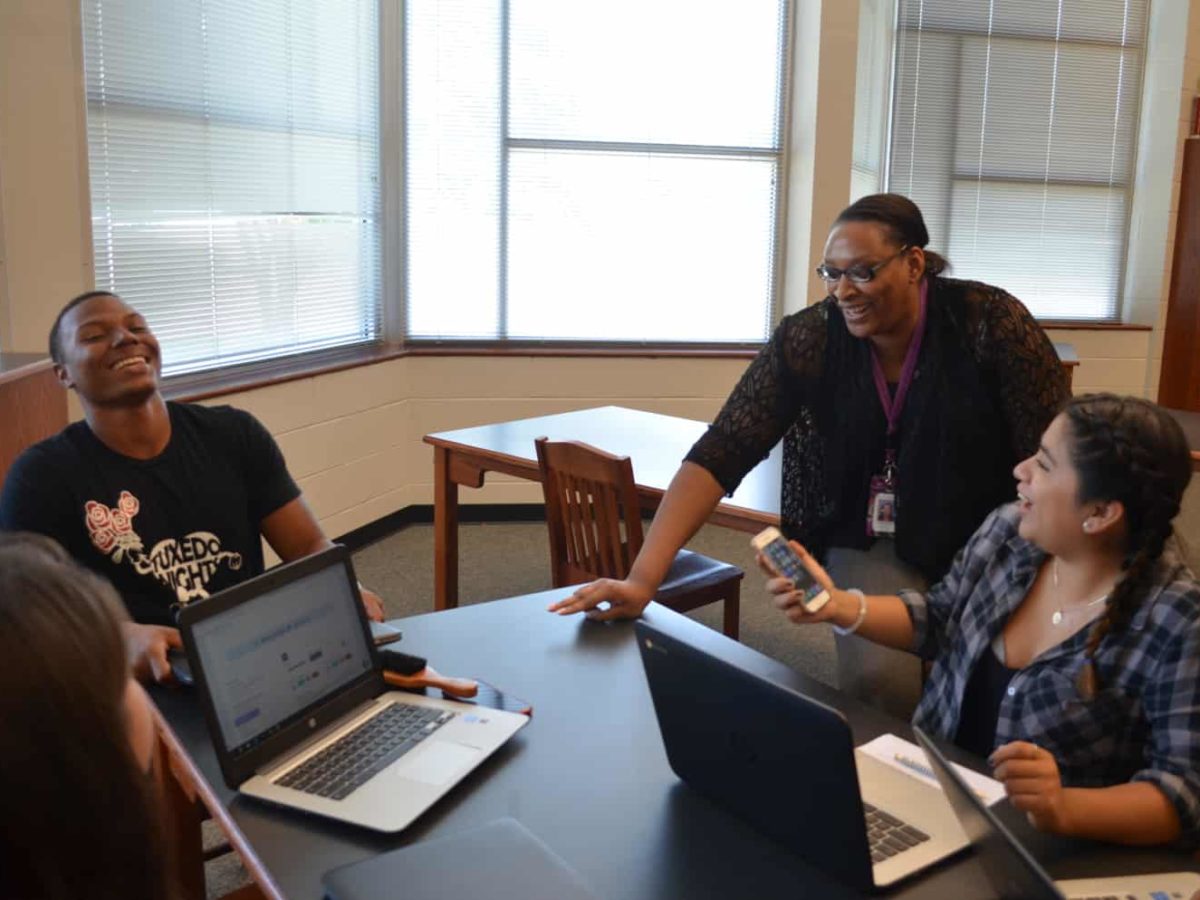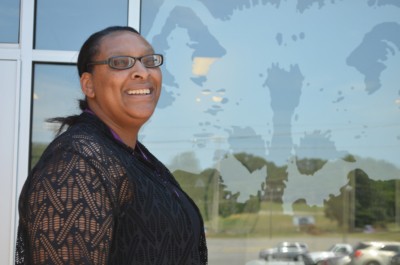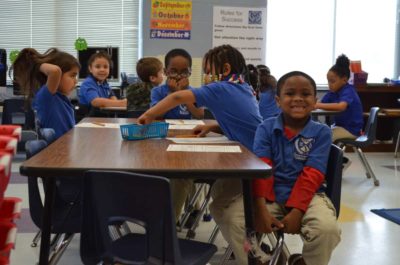
Michelle Ellis, a science teacher at Hunter Huss High School in Gastonia, spent most of her life in that city. She was born in Baltimore, Maryland, but moved to North Carolina when she was five years old. She always knew she would be either a lawyer or a teacher. In the end, it was the role of the educator that won out.
“I loved kids. I wanted to help them to learn,” Ellis said.
She has a personal perspective to share with her often low-performing, low-income students. When she was about 13 years old, Ellis was homeless and had to learn how to balance school work with an uncertain personal life.
“And as I started to get older, my own experiences, I knew I was going to make it out of the situations I was in, and I wanted to finally just tell kids you can get out of these same situations that it seems like more kids are in now,” she said.
Ellis’ mother was a nurse, but the family had fallen on hard times. While Ellis said she had a sense that money was getting tight in the house, the reality of her situation really hit her when she and her mom moved into a hotel. That lasted for a short while before their situation grew even worse.
“That actual we have-to-go-to-the-shelter moment — that was like, ‘Wow,'” she said.
While times were tough, Ellis tried to focus on school and not let her personal issues interfere with her progress.
“You can’t ever forget what you’re going home too,” she said. “But you try to push it further to the back of your mind. I tried my best to be a regular student.”
She had help, not only from her friends, but also from one teacher in particular: Mama J.
Ellis said Mama J treated her like her own kid. She would help Ellis out with clothes or shoes, and Ellis even spent the night at her house a few times. And it was not as though Mama J was “filthy rich,” in Ellis’ words — she had four kids of her own to take care of — but that did not stop her from reaching out to Ellis.
 Ellis and her mother eventually got into Section 8 housing, and her life stabilized. While she continued to go back and forth on whether or not to become a teacher, her path was clear when her mother had to go on disability for health issues. Becoming a teacher would give Ellis a quicker path to bringing money home to her family. So she went to Belmont Abbey College and came back to Gastonia to teach.
Ellis and her mother eventually got into Section 8 housing, and her life stabilized. While she continued to go back and forth on whether or not to become a teacher, her path was clear when her mother had to go on disability for health issues. Becoming a teacher would give Ellis a quicker path to bringing money home to her family. So she went to Belmont Abbey College and came back to Gastonia to teach.
Her experiences gave her the skills and empathy necessary to help students in similar situations.
“I tend to take it more easier on them as far as, you don’t have that pencil, it’s not an act of irresponsibility,” she said. “It’s an act of, ‘I really couldn’t at that time, it was not my main concern,’” She gives extensions on assignments when necessary and, if students need access to a computer, she welcomes them to her classroom. She has become “a Mama J” to students who face struggles similar to those she faced growing up.
Ellis is quick to point out that she will help any student in need, but given her experience with homelessness, she feels a special connection with certain students.
Ellis was not always a science teacher. For some time, she taught math and social studies. But when she got to take part in a research experience for teachers at Florida State University, her love for science blossomed. She attributes that to being able to work hands-on in the lab and gain an experiential enthusiasm for the subject.
She has been teaching science for years now and tries to instill her love for the subject in her students. In her 15 years as a teacher in Gaston County Schools, she has learned a lot about how to teach students today.
For instance, Ellis understands that she needs to stop worrying so much about test scores, a concern that plagues teachers across the state.
“We all stress about these test scores and that’s never going to stop,” she said. She added that tests are just one measurement of teaching.
She said it is also important to remember that students are children at heart.
“It doesn’t matter what neighborhood they’re from…they’re still kids,” she said. “And they still like that kid stuff. They still need the love and attention.”
Ellis said it’s important for teachers to stay current on the culture, even pop culture, that students are experiencing. It gives her a connection with her students she might not otherwise have. She also stresses that parents can be a resource if teachers use them properly.
“I don’t come at them and say ‘Your child is doing x,y,z,’” she said. Rather, she treats the parents as the expert on their children. They can give her insight into a student’s home life, behavior, and interests.
Ellis also stresses the importance of knowing what students want to do with their lives. It can help direct her teaching.
She mentioned one student who wanted to become a military sniper but thought he didn’t have any need for science. She asked him what kinds of conditions he would be in as a sniper. What would the wind speed be? How would he calculate distance to the target? All of these, she said, were scientific measurements he would have to understand if he wanted to be effective. He argued the military would teach him all those things. But she asked him why the military would take him for that position over somebody who already understood the role of science in becoming a sniper.
“It made some difference, at least in his understanding,” she said.
While Ellis has honed her skills as a master teacher, she has also continued her studies. She went back for a master’s degree in education with an emphasis in K-8 science, and is now pursuing her doctorate in curriculum instruction with an emphasis on global education. She is doing that with financial assistance from the Burroughs Wellcome Fund Career Award for Science and Mathematics Teachers (CASMT).
Alfred M. Mays, program officer at the Burroughs Wellcome Fund, said the addition of Ellis to the India trip is a boon to the other teachers and to the experience.
“We think adding a veteran teacher allows there to be more context for why the international experience is so important and how it will benefit them,” Mays said. “I think they’re just more seasoned and the maturity is there to talk through lessons learned.”
He said the Burroughs Wellcome Fund tries to leverage awards across their different programs. While Ellis is not a Burroughs Wellcome Fund scholar, teachers in that program are a big part of this trip. Ellis will be able to take what she is learning as a CASMT awardee and share that and her other experiences with the teachers.
“It’s our goal that some of these teachers may end up being a CASMT awardee at some point,” Mays said.
As for Ellis, she hopes to use this India trip to gain direct experience of Indian culture, which she can then share with her students in the classroom. She said doing so, however, isn’t an easy thing for her: this is her first trip out of the country.
“It’s hard when you can’t even navigate your own country sometimes,” Ellis said.
Recommended reading



